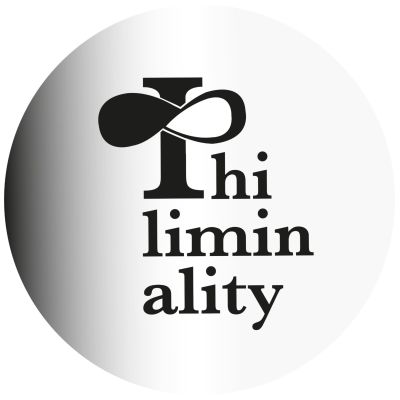Philiminality Oxford is a student-run platform for cross-cultural and interdisciplinary philosophy. We discuss philosophical ideas, thinkers, and approaches which are frequently marginalized in both Anglo-American and “continental” academic circles. We engage with broader horizons of what it means to do philosophy by discussing intersectional perspectives on brands of thought from across the world. We also recognize the value of exploring how philosophical issues interrelate with other disciplines, such as politics, theology, sociology, classics, history, psychology and natural science.
https://philiminalityoxford.wordpress.com/
Gesamtlänge aller Episoden: 18 hours 44 minutes
Barbara Jikai Gabrys, “Zen and Science: The Search for Meaning”
There is an apparent contradiction between Zen way of life and scientific studies of nature. However, on the fundamental level they have in common search for reality: through critical examination of facts, acceptance of impermanence of things and phenomena, and non-reliance on scriptures. Implementing and understanding common ground in both outlooks can lead to finding the meaning of human existence, personal flourishing and happiness.
Livia Kohn, “The Daoist Dimensions of Tai Chi”
Tai Chi is a popular method of self-cultivation and health enhancement that goes back to a 17th-century combination of martial arts and healing exercises (daoyin). The latter are first documented in the 3rd century BCE and today activated, under biomedical auspices, in the practice of qigong...
Adrian Kreutz, "The Soteriology of Contradiction"
Contradictions (and, arguably, the acceptance thereof) pervade Buddhist Philosophy. What is the point of those contradictions? In this talk, I shall argue that contradictions are an important soteriological instrument (upāya) for the practitioner. The enigmatic catuṣkoṭi, a statement to the effect that every proposition holds, does not hold, both holds and does not holds, and neither holds nor does not hold, is noteworthy in this context...
Graham Parkes, “Being-Here: There’s No App for That”
The purpose of many computer products in the area of information and communications technology is to capture the user’s attention, distract it from the actual place where the user is situated, and export it to some virtual space where advertisers practise their persuasion. The enterprise has been enormously successful, though the effects on users aren’t always benign (anxiety, depression, etc)...
Elisabeth Huh, "Unifying The Eating-Disordered Soul: Treating Anorexia Nervosa Through Ancient Greek Ethics and Psychoanalysis."
A growing number of philosophers are recognizing the value of psychoanalysis in enriching our understanding of rational psychic integration—a central task within the Platonic-Aristotelian ethical tradition...
Christopher Gill: “Stoic therapy of emotions and modern cognitive psychotherapy”
It is well-known that Stoic ideas about ethical guidance and the therapy of emotion influenced the formation of modern cognitive therapy. This paper outlines those links and also explores how far the two practices are parallel in their aims and methods with special reference to Epictetus’ ‘Discourses’ and ACT therapy...
Maria Victoria Salazar: "Recalibrating the Demos: Unknowing through Zen Kōans and Platonic Dialogues"
Zen kōans serve a didactic function within the institution of Buddhist schools, with teachers using them to help their pupils reach enlightenment. In this paper, I suggest that Platonic dialogues function similarly to Zen kōans in their inducement of aporia. Thus, reading and understanding the role Zen kōans are intended to play within Buddhist schools illuminates the role of aporia in Western philosophy...
Amber Carpenter, “Ideals and Ethical Formation, or Confessions of a Buddhist Platonist”
Buddhist ethics shares with Plato a rationalist orientation in the weak but crucial sense that a correct view of reality is the final goal, and that seeking and attaining this goal is transformative. This implies a further similarity, namely that the focus of ethical concern is on transformation of view, from which transformation of character (or experience) follows...
Derek van Zoonen, "Plato's Therapy of Pleasure"
It is well-known that modern strands of psychotherapy—like Beck’s cognitive-behavioural therapy or Ellis’ rational emotive therapy—have been influenced by the Stoics and their take on the nature of emotions. It is not the world which causes our emotional upheaval, the Stoics and therapists propose, but how we construe the world through our mediating beliefs...
Katja Vogt, “No More This Than That”
In the Theaetetus, Plato ascribes a metaphysics to relativism according to which there are no stable objects or properties. In effect, the world dissolves and there is nothing we can refer to in speech. En route to this revisionist picture, Plato toys with expressions that might be suitable to talk about a world in flux: something is no more tall than not tall, no more cold than not cold, etc...
